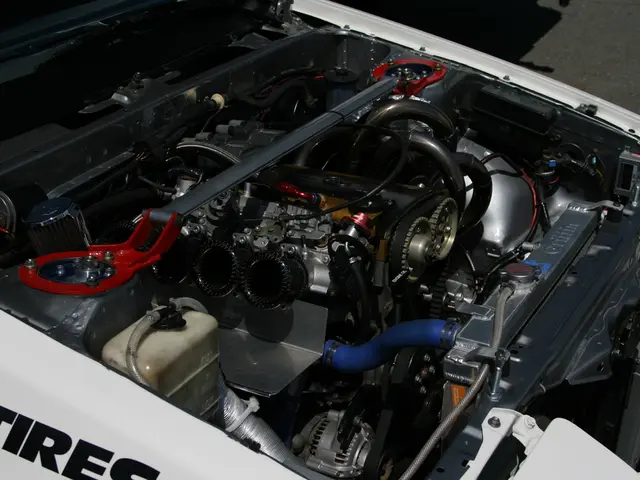Artificial Intelligence used for forecasting battery lifespan and safety
In a groundbreaking development, researchers from the University of Cambridge and the Massachusetts Institute of Technology (MIT) have designed an AI-based system to monitor the health and lifespan of lithium-ion batteries with unprecedented accuracy. This research, detailed in the journal Nature Communications, could significantly boost the adoption of electric vehicles (EVs) and improve the safety and reliability of batteries used in consumer electronics.
The AI-based system works by sending electrical pulses into the battery and measuring the response. These measurements are then processed by a machine learning algorithm to predict the battery's health and useful lifespan. This non-invasive method can be easily added to any existing battery system, making it a practical solution for battery monitoring.
The researchers conducted over 20,000 experimental measurements to train the AI-based model. The model identifies which electrical signals are most correlated with battery ageing, providing valuable insights into the physical mechanisms of battery degradation.
Alpha Lee, a co-leader of the research from the University of Cambridge, believes that improving the software that monitors charging and discharging, and using data-driven software to control the charging process, can lead to a significant improvement in battery performance.
The AI-based system developed by the researchers is ten times more accurate than the current industry standard. This high level of accuracy could aid in the development of safer and more reliable batteries for EVs and consumer electronics.
Predicting the state of health and the remaining useful lifespan of lithium-ion batteries is a significant issue limiting widespread adoption of electric vehicles. By addressing this issue, the new AI-based system could help overcome one of the major hurdles in the widespread adoption of EVs.
Safety and reliability are the most important design criteria in the development of batteries that can pack a lot of energy in a small space. The AI-based system could play a crucial role in ensuring the safety and reliability of batteries used in EVs and consumer electronics.
In conclusion, the development of this AI-based system to monitor the health and lifespan of lithium-ion batteries could be a game-changer for the electric vehicle industry. By improving battery performance, safety, and reliability, it could help pave the way for a more sustainable future.
Read also:
- Exploring Harry Potter's Lineage: Decoding the Enigma of His Half-Blood Ancestry
- Elon Musk Acquires 26,400 Megawatt Gas Turbines for Powering His AI Project, Overlooks Necessary Permits for Operation!
- U Power's strategic collaborator UNEX EV has inked a Letter of Intent with Didi Mobility to deploy UOTTA(TM) battery-swapping electric vehicles in Mexico.
- Commercial-grade hydrogen enhancement systems manufacturing initiated by H2i Technology








